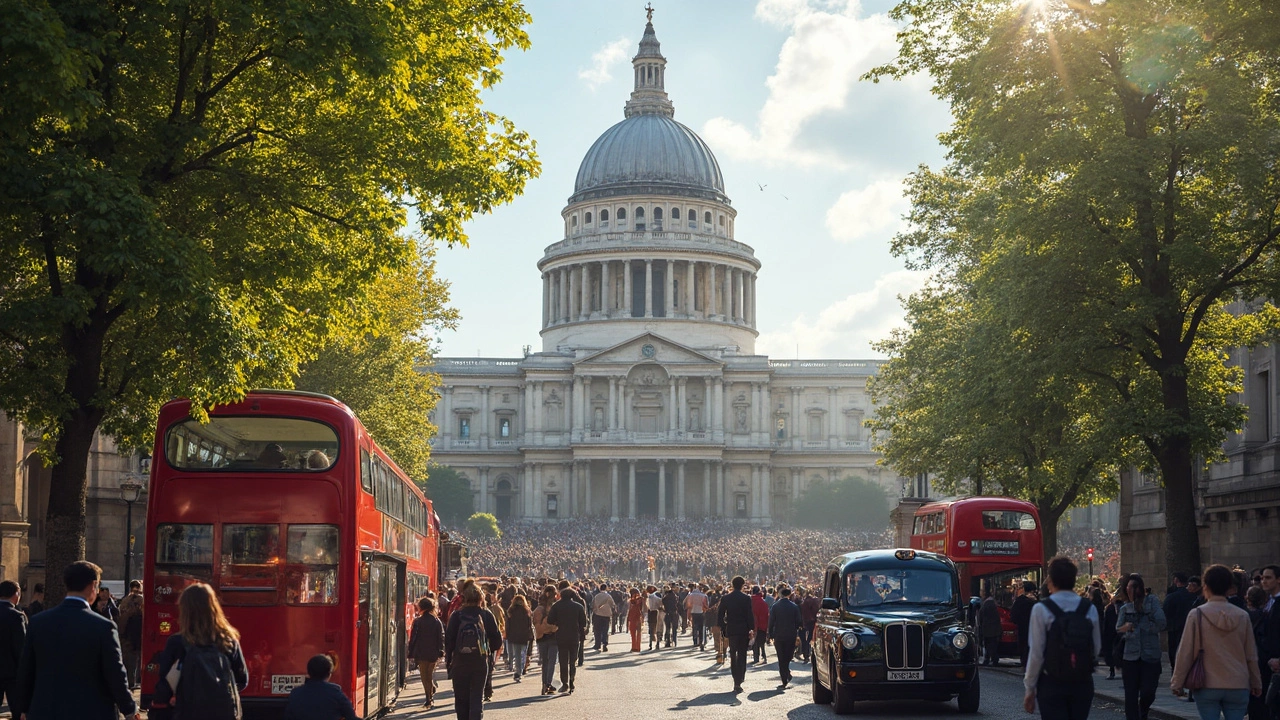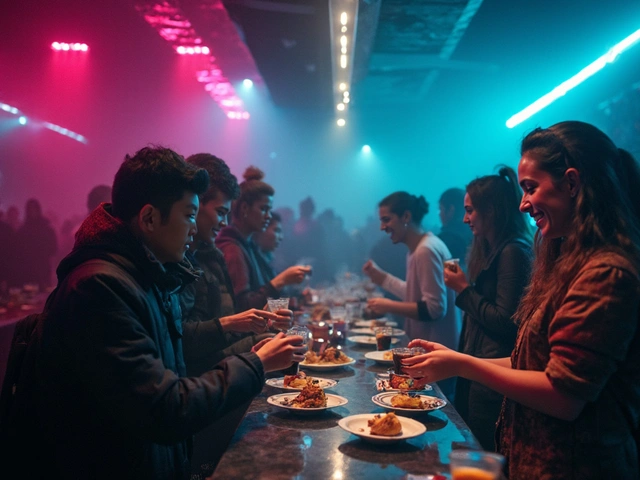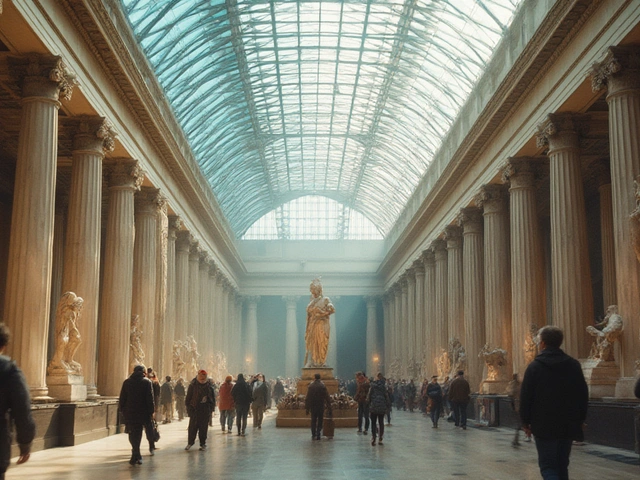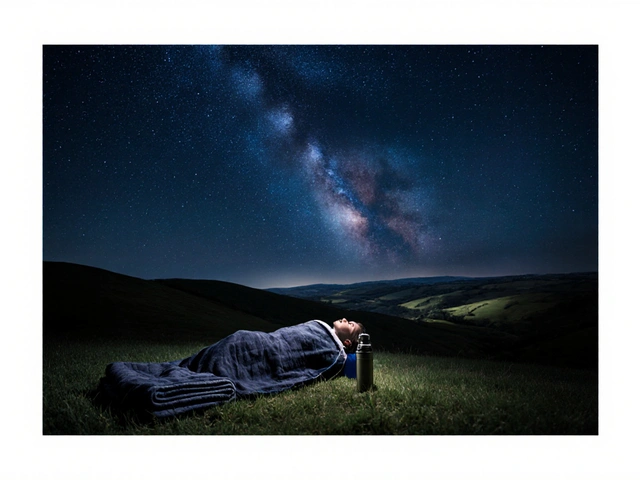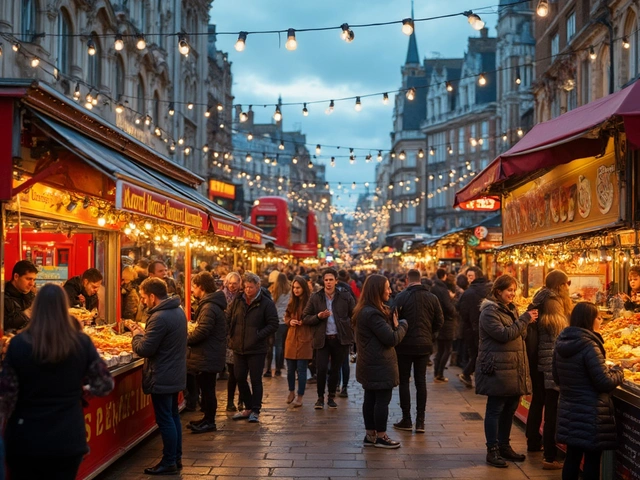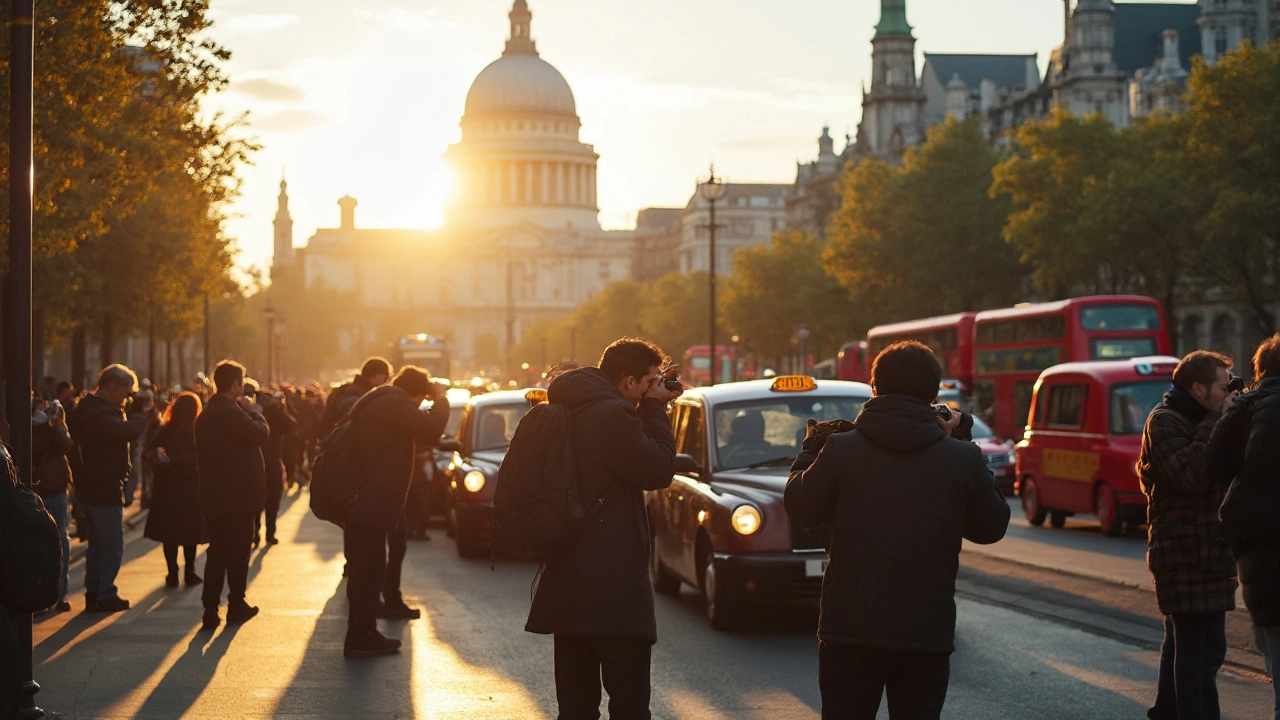
Straight away, if you live in London or just wander through the City from time to time, St. Paul’s Cathedral is pretty much impossible to ignore. Whether you’re on your phone or carrying something a bit fancier, it’s a magnetic spot for anyone into photography. And honestly, it’s not just about the classic front-on shot—though that’s always a winner—it’s the little side streets, rooftops, and even the buzz of the Millennium Bridge that give photos of St. Paul’s something extra.
You get a rare mix here: sweeping London cityscapes and intimate urban details, all in one place. Want those skyline shots with The Shard or walk-up photos with London’s iconic black cabs in the foreground? This part of the city delivers. Timing is everything; catch the morning glow or go during golden hour to watch the dome pick up that soft, peachy light you see in East London galleries.
- Why St. Paul’s Cathedral Is a London Photography Icon
- Prime Photo Spots: Perspectives You Can’t Miss
- Secret Angles and Hidden Corners
- Practical Advice for London Shoots
Why St. Paul’s Cathedral Is a London Photography Icon
If you’re in London with a camera, odds are you’re floating St. Paul’s Cathedral to the top of your list. It’s not just the history—though the cathedral’s been knocking around since 1710—it’s that it gives you what hardly anywhere else in the city can: those massive white stone curves and that epic dome, right in the thick of central London. Walk up Ludgate Hill, and you get this grand, almost cinematic view most locals instantly recognise. The cathedral’s dome is visible from loads of spots—shoot from Fleet Street, Bankside, or even Primrose Hill and you’ll see it peeking out over the skyline.
It’s the mix that makes it unbeatable. You’ve got this ancient architecture sitting right next to glassy modern towers like One New Change. That’s why both tourists and locals think of it as so classic—the contrast is just there, serving up killer compositions every time. Anyone who’s ever spent five minutes on Instagram has probably seen that classic shot of St. Paul’s framed by the Millennium Bridge cables. That angle is such a modern London image, it’s almost become a postcard cliché, but somehow it never gets old.
Loads of major events happen here, too. The royal wedding of Charles and Diana in 1981? Millions tuned in. The state funeral of Winston Churchill? St. Paul’s. The buzz and energy from these big moments keep drawing people with cameras. Add in the dome—one of the tallest in the world (over 110 metres)—and you’ve got something monumental to work with, literally and figuratively.
Here’s the quick rundown so you get the sense of why it stands out among London photography spots:
- Huge dome with instantly recognisable shape
- Cityscape and historic vibes side by side
- Constant flow of events and everyday city life
- Skyline shots from stacks of nearby bridges and rooftops
- Easy access with loads of bus and Tube options
| Fact | Details |
|---|---|
| Height of Dome | 111 metres (365 feet) |
| Year Built | Completed in 1710 |
| Visitors per Year | About 1.5 million paying, many more outside |
| Main Royal Event | Wedding of Charles and Diana (1981) |
| Most Popular Shot | From Millennium Bridge |
In a city packed with landmarks, St. Paul’s keeps turning up in everyone’s camera roll because it’s flexible—you get different moods at sunrise, fog, after rain, or all lit up at night. Plus, you won’t have trouble getting back for another go with the Central line stopping just next door.
Prime Photo Spots: Perspectives You Can’t Miss
If you’re hunting for the absolute best angles of St. Paul’s Cathedral, start at the west front approach on Ludgate Hill. Standing right at the top of Ludgate Hill, you get that classic view along the busy street, which is perfect if you want the hustle of London traffic in your shot. Wait for a red double-decker or a black cab to roll by—trust me, it makes your photo pop.
The Millennium Bridge is another hotspot. Head there early morning before the office crowd of the City gets going. Stand on the bridge facing north, and you’ll have that iconic shot with the bridge guiding the eye straight to the Cathedral’s dome. It’s great for those wide, everything-in-frame pictures. If it’s a moody day with low clouds, even better—the photos always look dramatic on Instagram. Evening’s also not bad if you want city lights.
Don’t skip Paternoster Square, right on the north side. The clean lines and open space work well for photos that focus on symmetry. At Christmas, the square’s decorations make for a really different kind of background. Loads of local photographers also come here for wedding and portrait shoots—it’s quieter than you’d think, especially on a Sunday.
For something with a proper London vibe, look for the old alleyways and side streets like Carter Lane or Ave Maria Lane. You’ll catch glimpses of the dome peeking out between older brick buildings—these photos really show off the mix of old and new in this part of the city.
Here’s a quick checklist for St. Paul's Cathedral shots with serious wow-factor:
- Ludgate Hill for the classic grand view, street scenes included.
- Millennium Bridge for wide shots and eye-catching lines.
- Paternoster Square for symmetry and a bit of peace in the middle of the City.
- Carter Lane and Ave Maria Lane for cool urban frames and hidden angles.
- One New Change rooftop terrace—free lift straight up for city panoramas and dome close-ups, especially at sunset.
Don’t forget to turn around sometimes—the views back down into the City or across to the river can surprise you. With this many options, you’ll run out of memory before you run out of ideas.
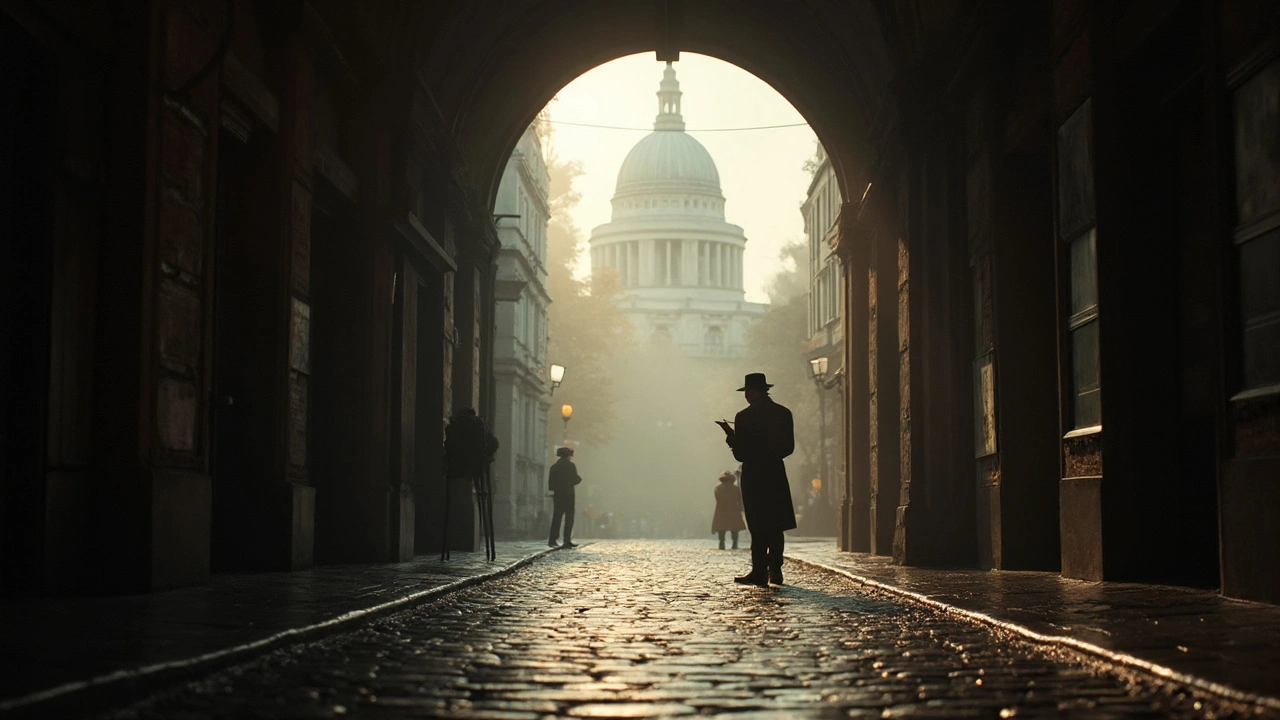
Secret Angles and Hidden Corners
Sure, everyone lines up in front of St. Paul’s for that standard dome shot, but if you want your pics to actually stand out, you’ll need to do some exploring. One of the best tricks is slipping down the side streets. Check out Paternoster Square—it’s right beside the cathedral and gives you those clean lines and modern touches around the classic architecture. Early mornings or late evenings, when the city’s quieter, are perfect for snapping here.
If you fancy a higher vantage point, try hopping over to the One New Change shopping centre. Go up to the rooftop terrace (it’s free) for a direct line on the dome. Instagram’s full of shots from here for a reason—you get the city skyline with St. Paul’s front and centre. Sunset is magic up there, especially if the weather’s behaving (a rare London treat, I know).
The Millennium Bridge is another winner, especially if you catch it when the crowds thin out. Walk halfway across, face north, and you’ll get that dramatic lead-in from the bridge straight to the cathedral. Want to really make it personal? Come by during the winter holidays when the bridge lights up, or after a rainy spell for that bonus reflection.
- Try the narrow section of Carter Lane for quirky alley shots. There’s usually less foot traffic, too.
- Look for the mural wall beside the cathedral on Creed Lane—it adds colour and local vibes to your photos.
- If you’re in the area on a weekday, keep an eye out for City workers in action; snapping street scenes gives context and life to the backdrop.
- Pop round to Festival Gardens (just south of the cathedral) if you want greenery in your photos—especially handy in spring when everything’s blooming.
Want a more creative spin? Wait for the iconic red double-deckers to pass by, or play with reflections in shop windows around Cheapside. There’s something about mixing St. Paul’s classic vibes with everyday London hustle that just works, especially if you’re after that genuine local feel. Don’t be afraid to linger a bit and try out angles nobody else bothers with; you might just end up with something unique for your camera roll—or your Instagram grid.
Practical Advice for London Shoots
If you want the best photos of St. Paul’s, it honestly pays to plan just a bit ahead. London weather isn’t famous for playing nice, and rain or drizzle can roll in out of nowhere—even in summer. Always check the forecast with a local app like BBC Weather before you set out, and pack a plastic bag or rain sleeve for your camera or phone, just in case.
Crowds are part of London life, especially near any famous landmark. If you’re after clean shots without random people in hi-vis vests, aim for early mornings on weekdays. Sundays tend to stay quieter until late morning too, thanks to actual services in progress. The dome opens for visitors from 8:30am (Monday-Saturday) and 10:00am on Sundays, so if interiors are your thing, be there at the start.
- Tripods aren’t allowed inside St. Paul’s Cathedral, not even little tabletop ones—security staff are friendly but firm. Outside, though, you’re good if you’re not blocking footpaths. For interior shots, bump up your ISO and use walls for extra stability.
- Phones or cameras? Both work. If you want that classic shot from the Millennium Bridge, use your phone’s wide lens for the dome framed by the Thames and city skyline.
- Light changes fast in the City. Golden hour here is usually around 7:30-8:30pm in June, and you’ll get that warm, low sunlight bouncing off the dome and glass offices across the river.
Need a break or a quick upload session? There are a bunch of solid coffee spots close by. Locals love Host Café on Great St. Thomas Apostle—it’s inside a Grade I-listed church, and you can recharge yourself (and your batteries) before heading back out.
| Location | Best Time | Tripod Friendly |
|---|---|---|
| Millennium Bridge | Sunrise, Sunset | Yes |
| Paternoster Square | Early Morning | Yes |
| St. Paul’s Steps | Weekdays, Early | Yes |
| Inside Cathedral | Opening Hours | No |
Don’t forget that St. Paul’s isn’t far from underground stations like St. Paul’s (Central line) and Mansion House (District/Circle lines), so you can get here quick even if you’re dashing out between meetings. And for those after St. Paul's Cathedral shots at night, stick around—London’s street lamps throw up golden tones on the dome, and it’s often quieter after office hours.

